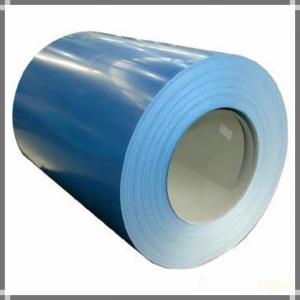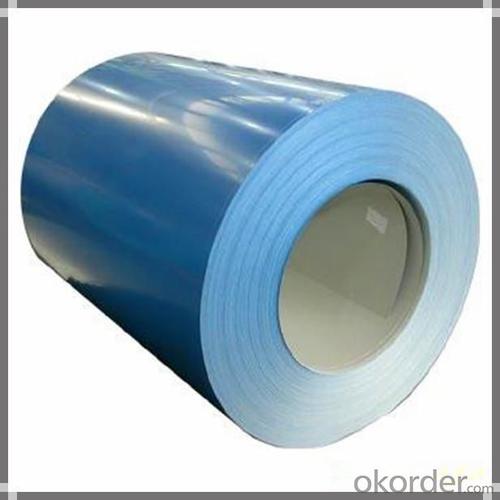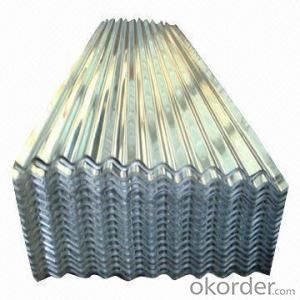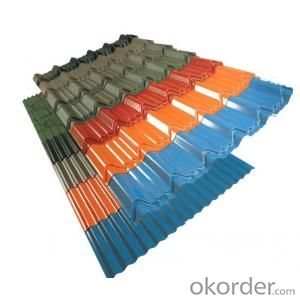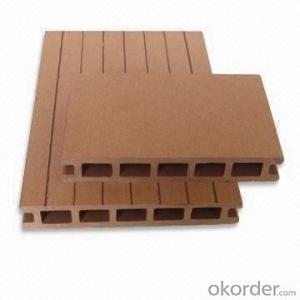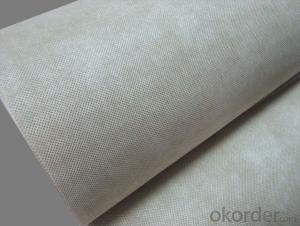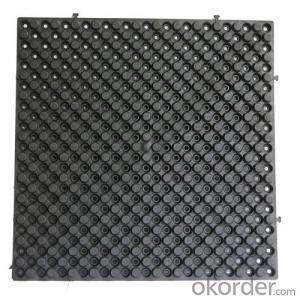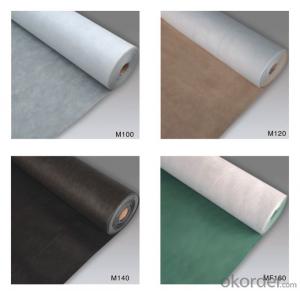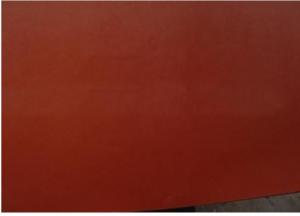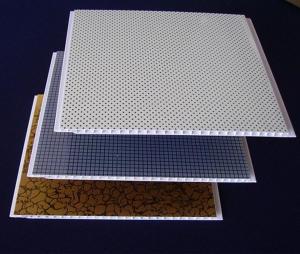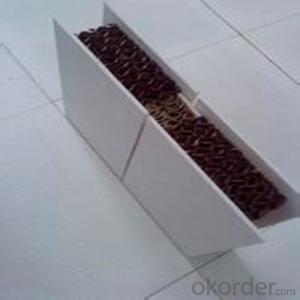Warehouse Interlocking Flexible Waterproofing Roof Sheet
- Loading Port:
- Shanghai
- Payment Terms:
- TT or LC
- Min Order Qty:
- 25 m.t.
- Supply Capability:
- 2000 m.t./month
OKorder Service Pledge
OKorder Financial Service
You Might Also Like
Warehouse Interlocking Flexible Waterproofing Roof Sheet
Description
Material:SGCH/Grade550/Grade80/S550GD/G550/SGC570
Product Name: Warehouse Interlocking Flexible Waterproofing Roof Sheet
Key Word: Roof Sheet
Nominal Thickness: 0.13mm~0.8mm
Nominal Width: 600~1050mm
Spangle: Regular Spangle, Mini Spangle
Substrate steel: Galvanized/ Glavalume Steel Sheet
Coating: Z30-Z180/AZ30~AZ100
Steel Grade:SGCH/Grade550/Grade80/S550GD/G550/SGC570
Supply Ability: 28,000 MT per Year
Application: Industrial construction,Warehouse, Roof of Steel Structure House ,Wall
Specification
| Standard | AISI, ASTM, BS, DIN, GB, JIS,etc. | |||
| Nominal Thickness | 0.13mm~0.8mm | |||
| Nominal Width | 600~1050mm | |||
| Length | Any Length by Required | |||
| Spangle | Regular Spangle, Mini Spangle | |||
| Substrate steel | Galvanized/ Glavalume Steel Sheet | |||
| Coating | Z30~Z180 | |||
| AZ30~AZ100 | ||||
| Steel Grade | SGCH/Grade550/Grade80/S550GD/G550/SGC570 | |||
| Delivery Lead Time | 15~30 Days after T/T Prepayment or L/C Date | |||
| Price Term | FOB,CIF,CFR,EX Works,FCA,DDU | |||
| Port of Loading | China Port | |||
| Payment | L/C at Sight | |||
| T/T 30% in Advance,70% Balance after Received B/L Copy | ||||
| Cash | ||||
FAQ
Q:What can you do for us?
A: We always shorten delivery time for our buyer.
We always package steel products well.
We always fix steel product in container well to make it safe arrive at destination port.
We always provide best and professional forward service and after sales service.
Pictures
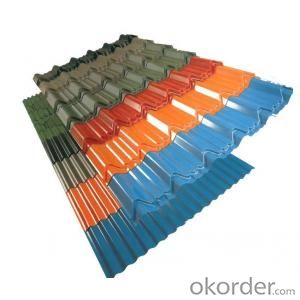
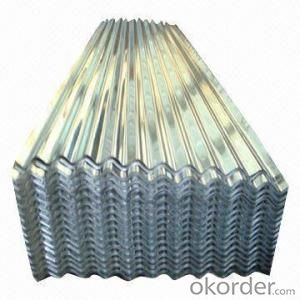
- Q: What are the different surface finishes available for steel sheets?
- There are several different surface finishes available for steel sheets, including hot rolled, cold rolled, galvanized, coated, and brushed finishes.
- Q: What is the price range of steel sheets?
- The cost of steel sheets can differ based on various factors, including the steel's type and grade, the sheet's thickness and size, and the prevailing market conditions. Typically, steel sheets can be priced between $0.60 and $1.50 per pound. Nevertheless, it is crucial to note that these figures are only approximate and subject to frequent modifications due to fluctuations in the steel market and other economic elements. To obtain the most precise and current pricing details for steel sheets, it is recommended to consult local suppliers or utilize online platforms.
- Q: Can steel sheets be used for storage racks or shelves?
- Yes, steel sheets can be used for storage racks or shelves. Steel sheets are durable, strong, and have high load-bearing capacity, making them ideal for constructing storage racks or shelves that can safely hold heavy items. Additionally, steel sheets can be easily customized and are resistant to wear and tear, making them a popular choice for industrial and commercial storage solutions.
- Q: Can steel sheets be used for playground equipment?
- Yes, steel sheets can be used for playground equipment. Steel is a highly durable and strong material that can withstand heavy use and harsh weather conditions, making it suitable for playground structures such as climbing frames, slides, and swings. Additionally, steel sheets can be shaped and formed into various designs, offering flexibility in creating engaging and safe play structures for children.
- Q: Can the steel sheets be easily welded?
- Yes, steel sheets can be easily welded.
- Q: Can steel sheets be used for electrical conductivity applications?
- No, steel sheets are not typically used for electrical conductivity applications as they have high electrical resistance. Materials with high electrical conductivity, such as copper or aluminum, are preferred for such applications.
- Q: Can steel sheets be used for manufacturing containers or packaging?
- Yes, steel sheets can be used for manufacturing containers or packaging. Steel is a durable and strong material that provides excellent protection for goods during transportation and storage. It is commonly used in industries such as food and beverage, chemicals, and manufacturing for the production of containers and packaging.
- Q: What is the average lifespan of steel sheets?
- The average lifespan of steel sheets can vary depending on various factors such as the quality of the steel, the environment it is exposed to, and the maintenance and care it receives. However, in general, steel sheets can last anywhere from 20 to 50 years or more if properly maintained and protected from corrosion.
- Q: Can steel sheets be used for manufacturing architectural elements?
- Yes, steel sheets can be used for manufacturing architectural elements. Steel is a versatile material that offers strength, durability, and design flexibility, making it suitable for various architectural applications such as roofing, cladding, façades, and structural components. Steel sheets can be easily shaped, cut, and welded to create customized architectural elements that meet specific functional and aesthetic requirements. Additionally, steel's corrosion resistance properties make it a suitable choice for both interior and exterior architectural applications, ensuring longevity and low maintenance.
- Q: Are steel sheets suitable for railway track construction?
- Steel sheets are indeed suitable for constructing railway tracks. The reason lies in the exceptional durability and strength of steel as a material, which makes it perfect for withstanding the heavy loads and constant traffic of trains. Railway tracks often utilize steel sheets as the foundation, providing a stable base for the rails and ensuring reliability and stability. Furthermore, steel possesses remarkable resistance to wear, corrosion, and deformation, which are vital factors in maintaining the long-term performance of railway tracks. Its high strength-to-weight ratio also allows for lighter track structures and reduces the need for frequent maintenance. All in all, steel sheets are a favored option in railway track construction due to their robustness, longevity, and cost-effectiveness.
Send your message to us
Warehouse Interlocking Flexible Waterproofing Roof Sheet
- Loading Port:
- Shanghai
- Payment Terms:
- TT or LC
- Min Order Qty:
- 25 m.t.
- Supply Capability:
- 2000 m.t./month
OKorder Service Pledge
OKorder Financial Service
Similar products
Hot products
Hot Searches
Related keywords
